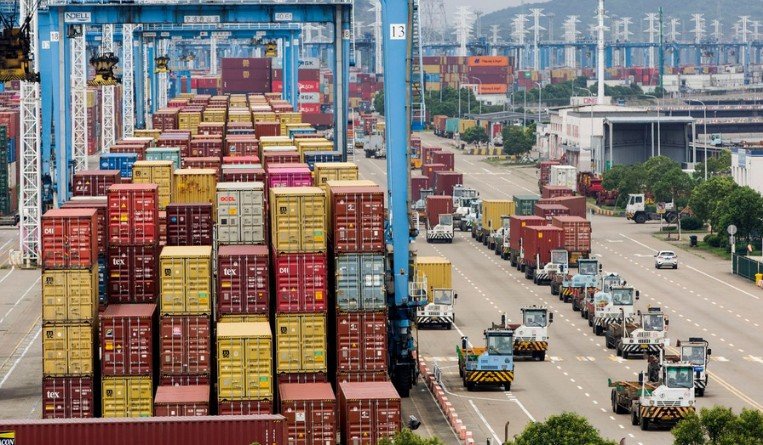Covid-19 related disruptions at Ningbo, home to the world's third-largest container port, continued following announcements of a partial lockdown of Ningbo city in East China's Zhejiang Province.
"The authorities announced a lockdown for the district of Beilun in Ningbo following the discovery of a coronavirus case on Saturday," Chinese state media, Global Times, reported, adding that the infected person was an employee of Shenzhou International, a major garment processing company in Ningbo that supplies global sports and leisure brands like Nike and Uniqlo.
From Saturday, January 1, Ningbo, China's major port city, reported 23 coronavirus cases — although the outbreak, it said, is highly concentrated in Shenzhou's plant in Beilun which is one of the 19 areas of the Ningbo-Zhoushan port and home to some of the city's busiest container terminals.
Due to this, truck entry into the port area remains restricted while some container freight stations suspended operations due to roadblocks and other lockdown measures in the city.
In its report, Global Times said "local officials have taken emergency measures to guarantee the logistics of Beilun after the lockdown, including issuing thousands of passes to qualified truck drivers to help them enter closed areas, as well as allocating designated "greenways" where external container vehicles are allowed to enter the port region."
According to government data on Monday, among the over 20,000 local container truck drivers, only 6,000 some had received special passes to enter and leave the port via five designated routes.
The new lockdown measures — part of China's zero-Covid policy — is seen to raise further concerns on impacting the already fragile supply chain, especially as the industry gears for the expected surge of exports for the Chinese New Year on February.
Risks of more operational disruptions
Meanwhile, Lars Jensen, CEO of liner consultancy Vespucci Maritime, said via LinkedIn, that China’s push for a zero-tolerance policy towards Covid-19 infections, combined with the rise of the more contagious Omicron variant means that the risks of larger disruptions to not only supply chains but also manufacturing are significant in the coming weeks.
"Evidently China continues the zero-tolerance policy regarding Covid. For the purpose of understanding the supply chains it doesn't matter whether you agree or not with China's chosen strategy, it is simply a fact that such a policy does increase the risk of more operational disruptions due to lock down," Jensen said.
"And it is also a fact that the Omicron variant is more contagious than previous variant. Hence the risks of larger disruptions to not only supply chains but also manufacturing are significant in the next weeks," he added.
Ningbo has had three partial lockdowns in the past six months.



